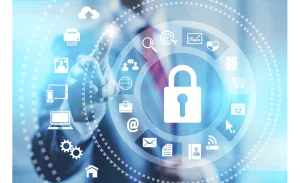Data security is a top concern for businesses of all sizes. In today’s digital age, sensitive information can be compromised in a number of ways. From hacking and cyber-attacks to simple human error, there are a multitude of ways that data can fall into the wrong hands. This is where the ISO 27001 certification comes in. ISO 27001 is an internationally recognized standard for information security management, that provides a framework for businesses to implement best practices for data security. In this blog post, we will discuss how the ISO 27001 certification can improve data security for your business.
About ISO 27001 and Its History
ISO 27001 is an international standard that sets requirements and guidance for the establishment and management of an information security management system (ISMS) within any organization. The standard provides an effective framework to help organizations manage and protect their most important asset – information. The ISO 27001 standard is applicable to all organizations, regardless of size, type, or industry.
The ISO 27001 standard was first published in October 2005 by the International Organization for Standardization (ISO), an international body that develops and publishes standards. It was originally based on the British Standard BS 7799-2, which itself was based on an earlier standard, BS 7799-1. The first version of BS 7799 was published in 1995 and quickly became the international benchmark for information security management systems (ISMS). BS 7799-2 was published in 2002 and provided guidance on how to implement an ISMS based on the BS 7799-1 framework. In 2005, BS 7799-2 was revised and renamed as ISO 27001. The latest version of the ISO 27001 standard, ISO 27001:2013, was published in September 2013. It contains a number of significant changes from the previous version, including a new structure and revised requirements.
Importance of Data Security
Data security is crucial, for businesses of all sizes. In today’s digital world, data is the most valuable asset for many organizations. Data must be shielded from misuse, disclosure, access, and erasure by unauthorized parties. A data breach can have a significant negative impact on an organization, including financial losses, damage to reputation, and loss of customer trust. In order to protect data, organizations must implement adequate security measures. The ISO 27001 standard provides a comprehensive and systematic approach to data security. It helps organizations to identify, assess, and manage the risks to their data. By implementing ISO 27001, organizations can ensure that their data is adequately protected and that they are prepared for any potential security incident.
Elements of ISO 27001 Covering Data Security
The ISO 27001 standard contains a number of elements that are relevant to data security. These include:
- Data Security Policy: The data security policy is the foundation of the ISMS. It provides a high-level overview of the organization’s approach to data security. On a regular basis, the policy should be reviewed and updated.
- Risk assessment Process: Organizations must identify and assess the risks to their data. This process includes identifying the assets that need to be protected, the threats and vulnerabilities that could potentially impact those assets, and the likelihood and potential impact of each threat.
- Access Control Mechanisms: Organizations must put in place appropriate access control mechanisms to protect data from unauthorized access. This may include physical security measures, such as security guards and locked doors, as well as logical security measures, such as user IDs and passwords.
- Incident Management Process: Organizations must have a process in place to manage incidents that occur. This process should include steps for identifying, reporting and investigating incidents.
How Does Information Control Help to Guard Data Security?
Information control is the process of controlling access to information, maintaining its accuracy and integrity, and ensuring its confidentiality. By controlling who has access to information and how it is used, companies can limit the risk of data breaches and unauthorized access. In addition, information control allows companies to track who has accessed sensitive data and when making it easier to identify potential security threats. By implementing an effective information control strategy, companies can set guard their data and ensure a high level of security.
The ISO 27001 standard contains a number of controls that relate to information security. These include:
- Classification of data: Organizations must classify data according to its sensitivity. This will help to ensure that the appropriate level of security is applied to each type of data.
- Access control: Organizations must put in place controls to ensure that only authorized individuals have access to data. This may include physical security measures, such as security guards and locked doors, as well as logical security measures, such as user IDs and passwords.
- Data accuracy and integrity: Organizations must ensure that data is accurate and up-to-date. They should also put in place controls to prevent unauthorized changes to data.
- Data storage: Organizations must store data securely. This may include encrypting data or storing it in a secure location.
Competence and Training for Effective ISMS
In order for the ISMS to be effective, it is important that all employees are competent and trained in data security. Employees should be aware of the organization’s data security policy and procedures. They should be able to recognize and report potential security threats. Training should be provided on a regular basis to ensure that employees are up-to-date on the latest data security threats and how to protect against them. By ensuring that all employees are competent and trained in data security, companies can set guard their data and ensure a high level of security.
Verification and Review in Data Security
To ensure that the ISMS is effective, it is important to verify and review it on a regular basis. Organizations should conduct internal audits to check that the controls are in place and are being followed. They should also review the results of any incident investigations to identify any areas where improvements can be made. By conducting regular audits and reviews, companies can set guard their data and ensure a high level of security.
Continual Improvement
The ISO 27001 standard requires organizations to continually improve their ISMS. This means that companies should constantly review and update their data security policy and procedures. They should also seek out new technologies and methods that can help to improve their data security.
By obtaining ISO 27001 certification, companies can set guard their data and ensure a high level of security. In addition, the certification can help to reassure customers and clients that their data is safe.
Conclusion
Implementing an ISO 27001-compliant ISMS can help companies to set a guard for their data and ensure a high level of security. The standard contains a number of controls that relate to information security, including classification of data, access control, data accuracy and integrity, and data storage. To be effective, the ISMS must be accompanied by adequate employee competence and training. In addition, the ISMS should be subject to regular verification and review. Finally, organizations should continually strive to improve their ISMS. By taking these steps, companies can set guard their data and ensure a high level of security.




